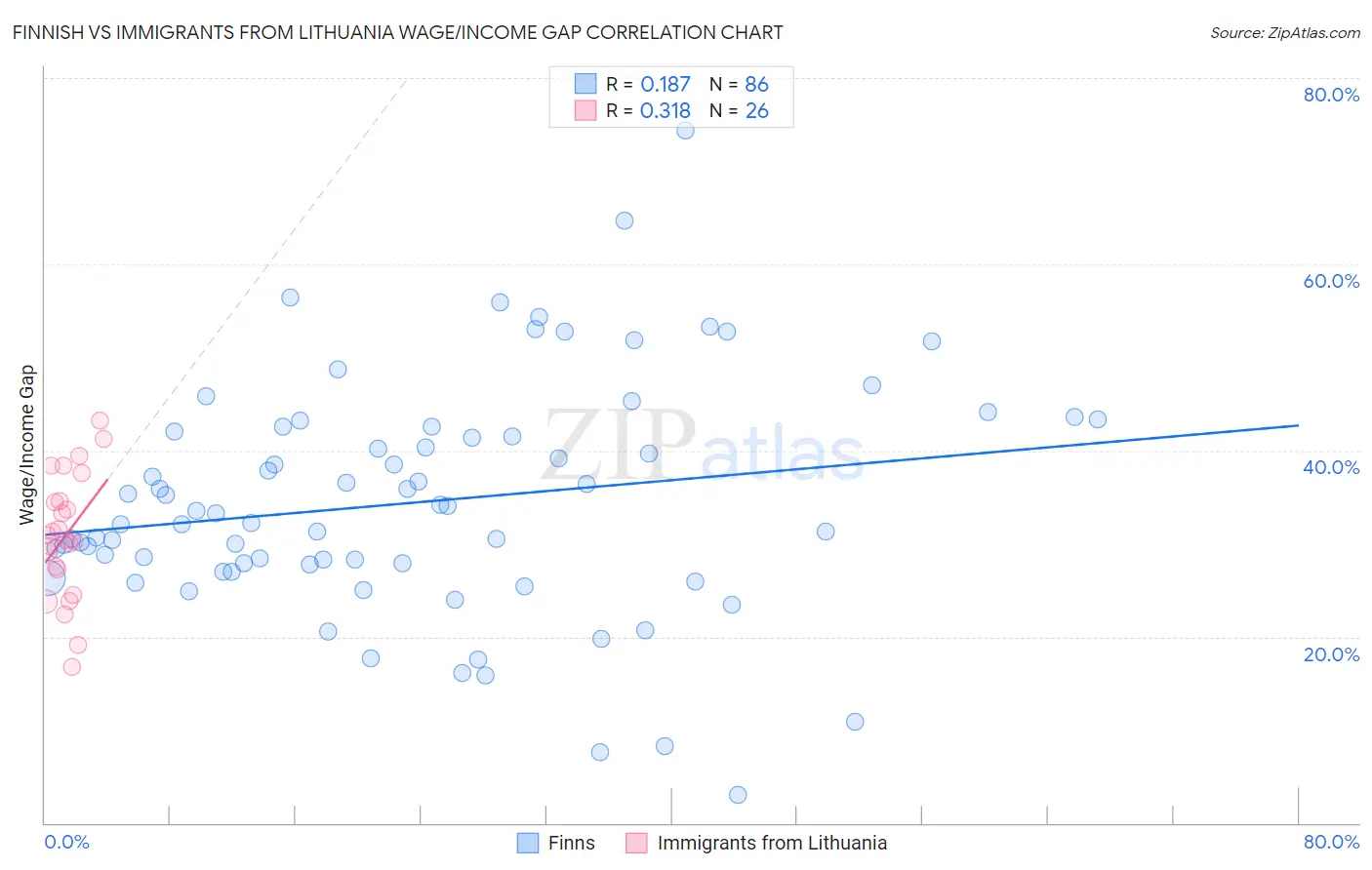Finnish vs Immigrants from Lithuania Wage/Income Gap
COMPARE
Finnish
Immigrants from Lithuania
Wage/Income Gap
Wage/Income Gap Comparison
Finns
Immigrants from Lithuania
28.6%
WAGE/INCOME GAP
0.1/ 100
METRIC RATING
310th/ 347
METRIC RANK
28.6%
WAGE/INCOME GAP
0.1/ 100
METRIC RATING
311th/ 347
METRIC RANK
Finnish vs Immigrants from Lithuania Wage/Income Gap Correlation Chart
The statistical analysis conducted on geographies consisting of 404,207,889 people shows a poor positive correlation between the proportion of Finns and wage/income gap percentage in the United States with a correlation coefficient (R) of 0.187 and weighted average of 28.6%. Similarly, the statistical analysis conducted on geographies consisting of 117,698,624 people shows a mild positive correlation between the proportion of Immigrants from Lithuania and wage/income gap percentage in the United States with a correlation coefficient (R) of 0.318 and weighted average of 28.6%, a difference of 0.070%.

Wage/Income Gap Correlation Summary
| Measurement | Finnish | Immigrants from Lithuania |
| Minimum | 3.0% | 16.8% |
| Maximum | 74.4% | 43.2% |
| Range | 71.4% | 26.5% |
| Mean | 34.4% | 30.9% |
| Median | 32.8% | 30.7% |
| Interquartile 25% (IQ1) | 27.7% | 27.3% |
| Interquartile 75% (IQ3) | 42.0% | 34.5% |
| Interquartile Range (IQR) | 14.3% | 7.3% |
| Standard Deviation (Sample) | 12.5% | 6.7% |
| Standard Deviation (Population) | 12.5% | 6.5% |
Demographics Similar to Finns and Immigrants from Lithuania by Wage/Income Gap
In terms of wage/income gap, the demographic groups most similar to Finns are Macedonian (28.6%, a difference of 0.090%), Polish (28.5%, a difference of 0.18%), Eastern European (28.6%, a difference of 0.20%), Immigrants from Denmark (28.5%, a difference of 0.25%), and White/Caucasian (28.5%, a difference of 0.26%). Similarly, the demographic groups most similar to Immigrants from Lithuania are Eastern European (28.6%, a difference of 0.13%), Macedonian (28.6%, a difference of 0.16%), Polish (28.5%, a difference of 0.25%), French (28.7%, a difference of 0.26%), and Immigrants from Denmark (28.5%, a difference of 0.32%).
| Demographics | Rating | Rank | Wage/Income Gap |
| Immigrants | Northern Europe | 0.2 /100 | #300 | Tragic 28.5% |
| Immigrants | Canada | 0.2 /100 | #301 | Tragic 28.5% |
| Scotch-Irish | 0.2 /100 | #302 | Tragic 28.5% |
| Irish | 0.2 /100 | #303 | Tragic 28.5% |
| Immigrants | Netherlands | 0.2 /100 | #304 | Tragic 28.5% |
| Immigrants | South Africa | 0.1 /100 | #305 | Tragic 28.5% |
| Whites/Caucasians | 0.1 /100 | #306 | Tragic 28.5% |
| Immigrants | Denmark | 0.1 /100 | #307 | Tragic 28.5% |
| Poles | 0.1 /100 | #308 | Tragic 28.5% |
| Macedonians | 0.1 /100 | #309 | Tragic 28.6% |
| Finns | 0.1 /100 | #310 | Tragic 28.6% |
| Immigrants | Lithuania | 0.1 /100 | #311 | Tragic 28.6% |
| Eastern Europeans | 0.1 /100 | #312 | Tragic 28.6% |
| French | 0.1 /100 | #313 | Tragic 28.7% |
| Immigrants | Scotland | 0.1 /100 | #314 | Tragic 28.7% |
| Maltese | 0.1 /100 | #315 | Tragic 28.7% |
| Lithuanians | 0.1 /100 | #316 | Tragic 28.7% |
| Belgians | 0.1 /100 | #317 | Tragic 28.8% |
| Basques | 0.1 /100 | #318 | Tragic 28.8% |
| Slovaks | 0.1 /100 | #319 | Tragic 28.9% |
| British | 0.1 /100 | #320 | Tragic 28.9% |